Alternative Places of Detention exhibition at Law Library
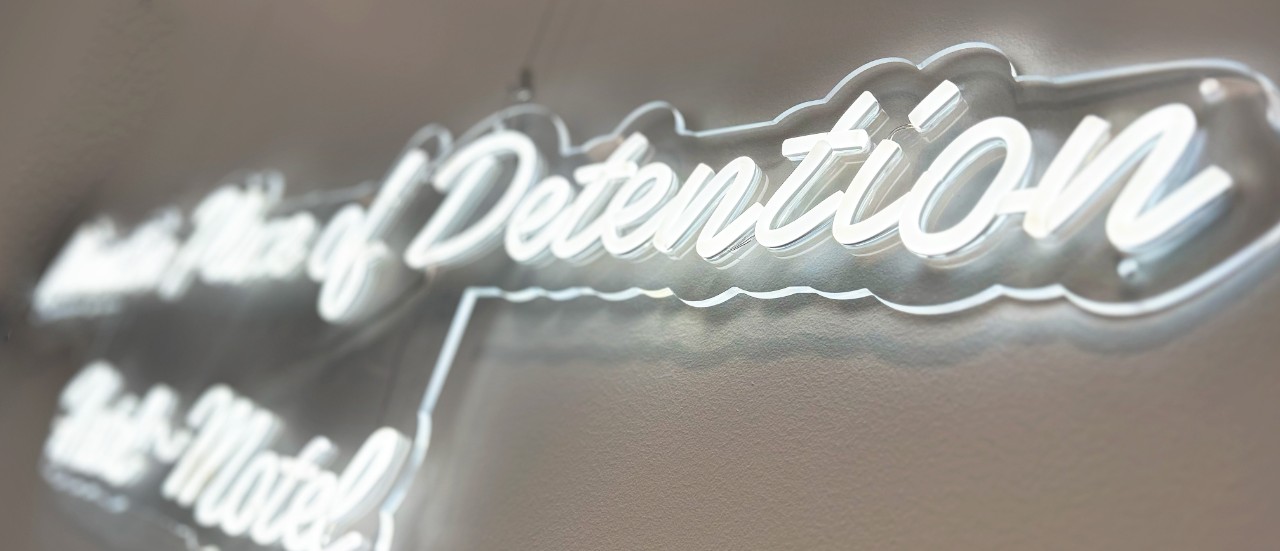
A new exhibition at The Herbert Smith Freehills Law Library examines Australia's use of hotels as immigration detention facilities through an artistic lens. Associate Professor Carolyn McKay's "The APOD Solution" features seven LED neon flex signs and a video installation that challenges viewers to confront these dual-purpose spaces.
The APOD Solution incorporates text from Australian immigration case law and related reports concerning using hotels and motels as ‘alternative places of detention’ (APODs).
The LED light installation captures the nostalgic look of retro hotel/motel neon signs but with a twist – the usual bright and welcoming colours are muted, and the signs display legal text from immigration case law about APOD hotels/motels. This text includes legal terminology that delineates or ‘others’ individuals held in detention in APODs.
A 2023 Australian Human Rights Commission report observed that hotel/motel guests are usually unaware that their holiday accommodation is also a place of immigration detention. This dichotomy between resort pleasure and oppressive surveillance underpins the installation. The AI 'promptograph images', in particular, respond to the weirdness of APOD hotels/motels as destinations for fun family holidays and, simultaneously, prolonged and traumatic detention.
"Detention is diametrically opposed to the original purpose and spatial logic of hotels and motels as places of hospitality," Dr McKay explains. "Hospitality involves acts of invitation, reception, welcome, incorporation and safety from the host to the guest. On the other hand, detention suggests hostility, containment, punishment, power and control."
The work forms part of Dr McKay's broader "Crime Scene Motel Project," which explores the unique, but often overlooked, characteristics of motels that invite and enable transgression. Her research reveals hotels and motels as multifaceted spaces that serve various social functions - from emergency accommodation for domestic violence victims to temporary housing for recently released prisoners.
The APOD Solution was first exhibited in Boundaries: Transcended at Watt Space, University of Newcastle 2024.
This exhibition was launched on Monday, 17 February 2025 and will be on display until the end of semester 1, 2025.
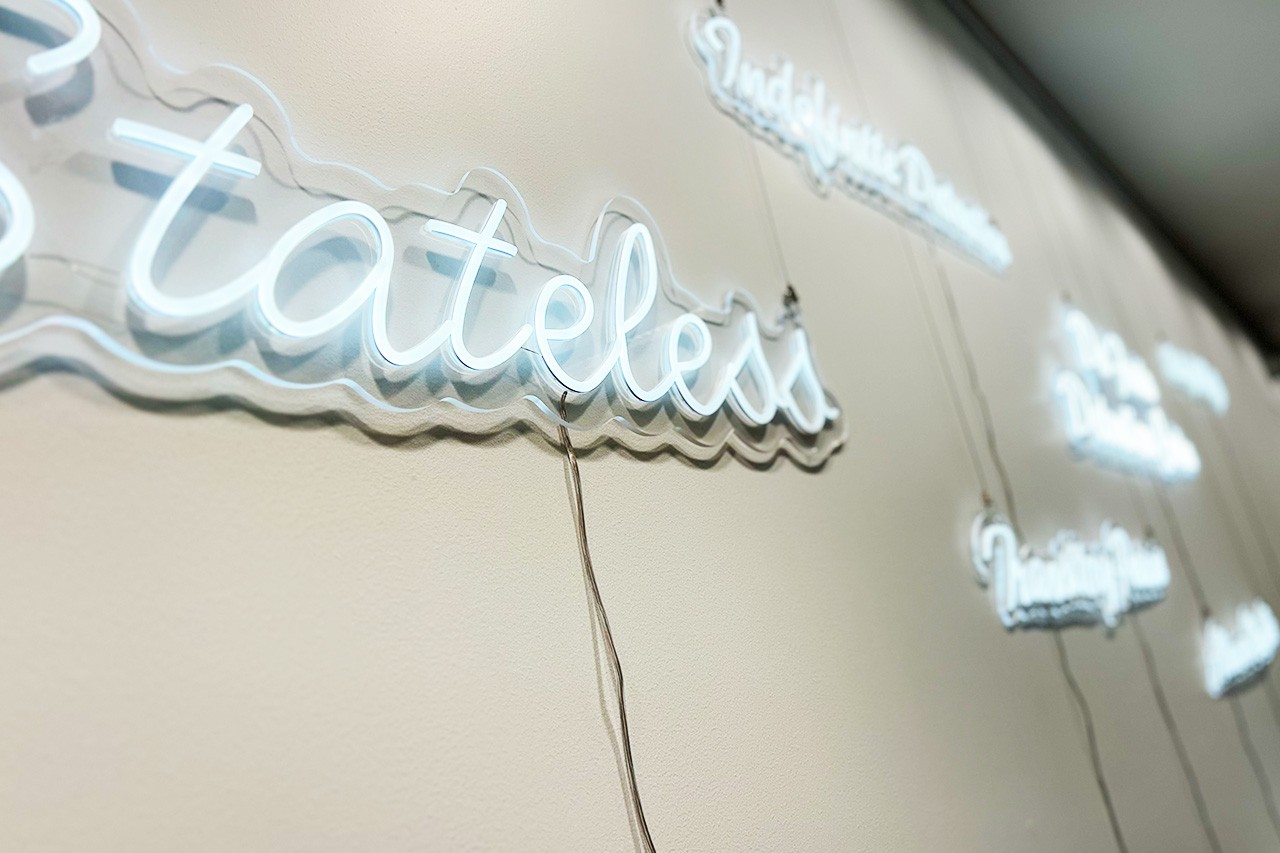
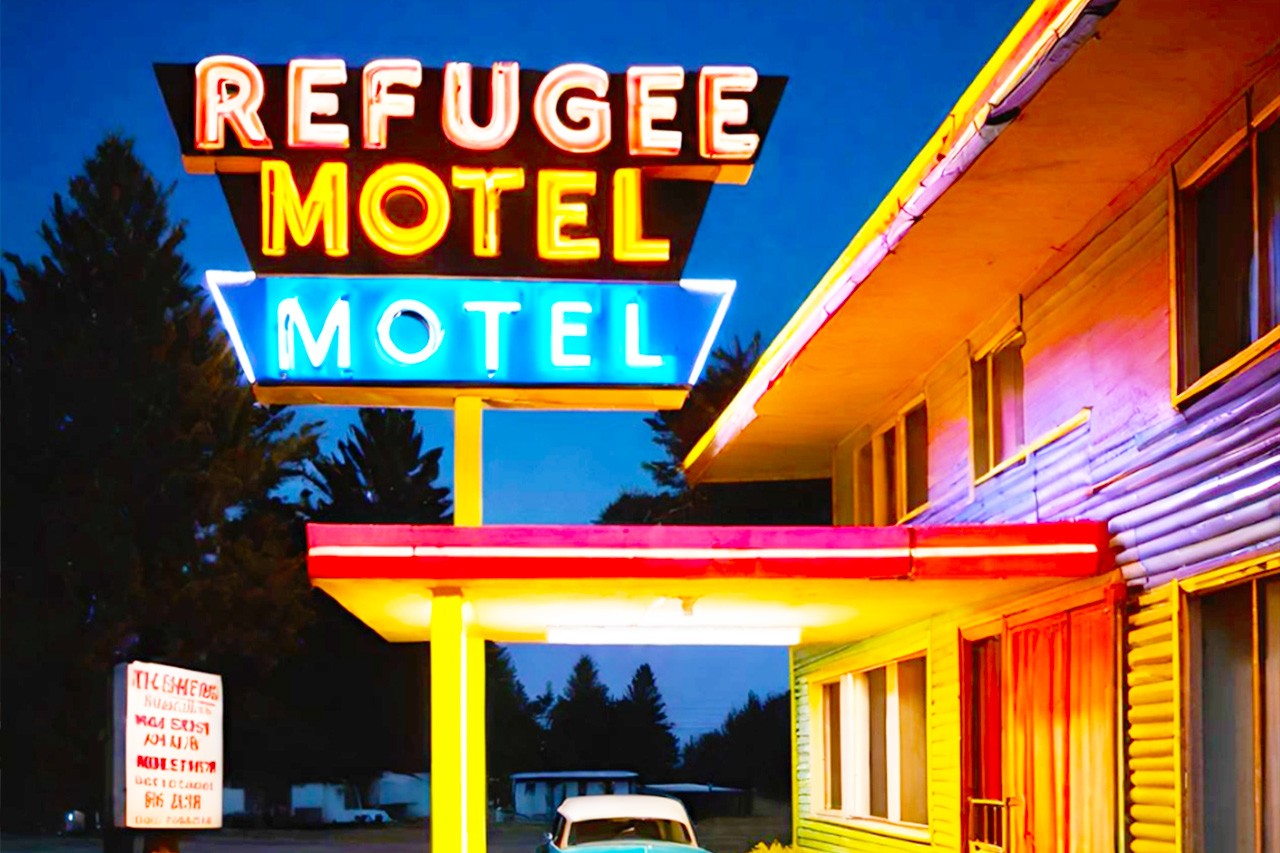
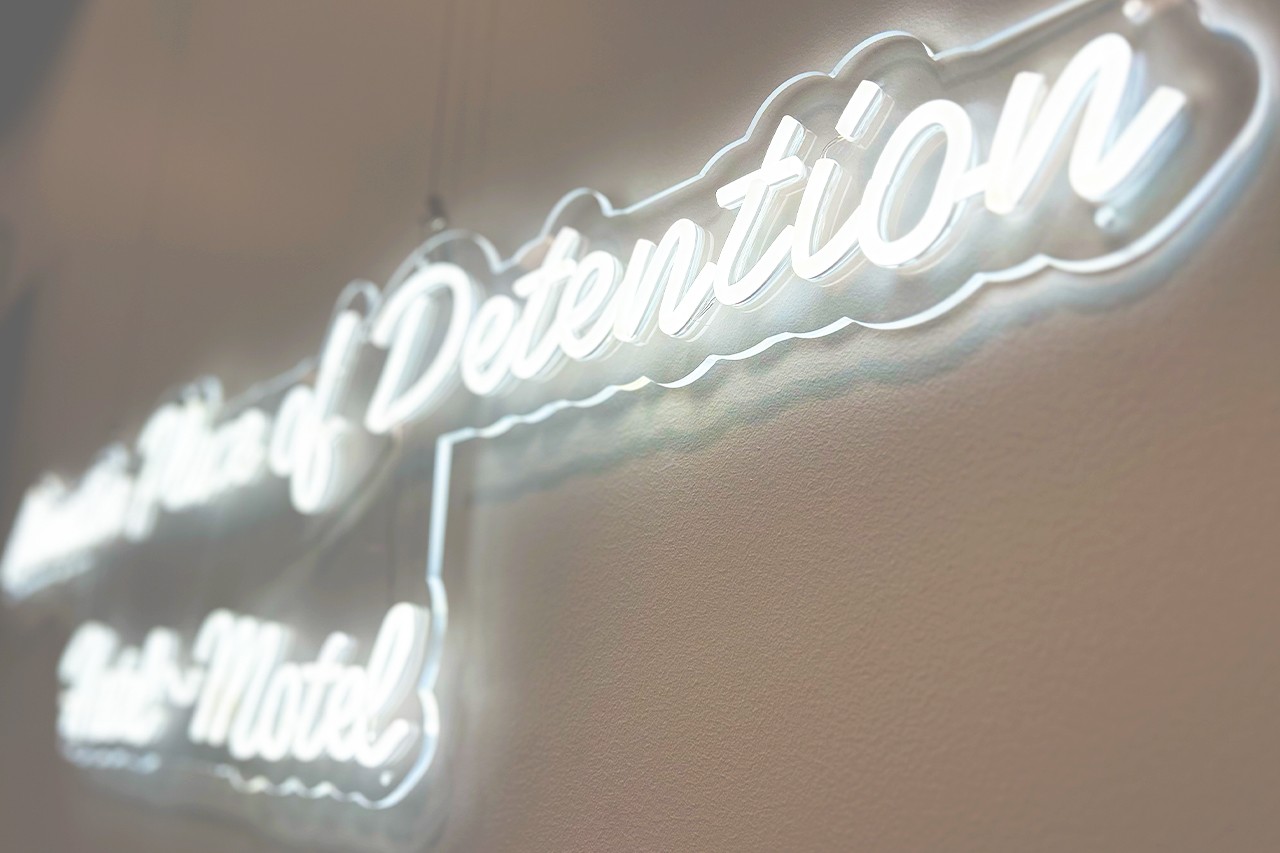
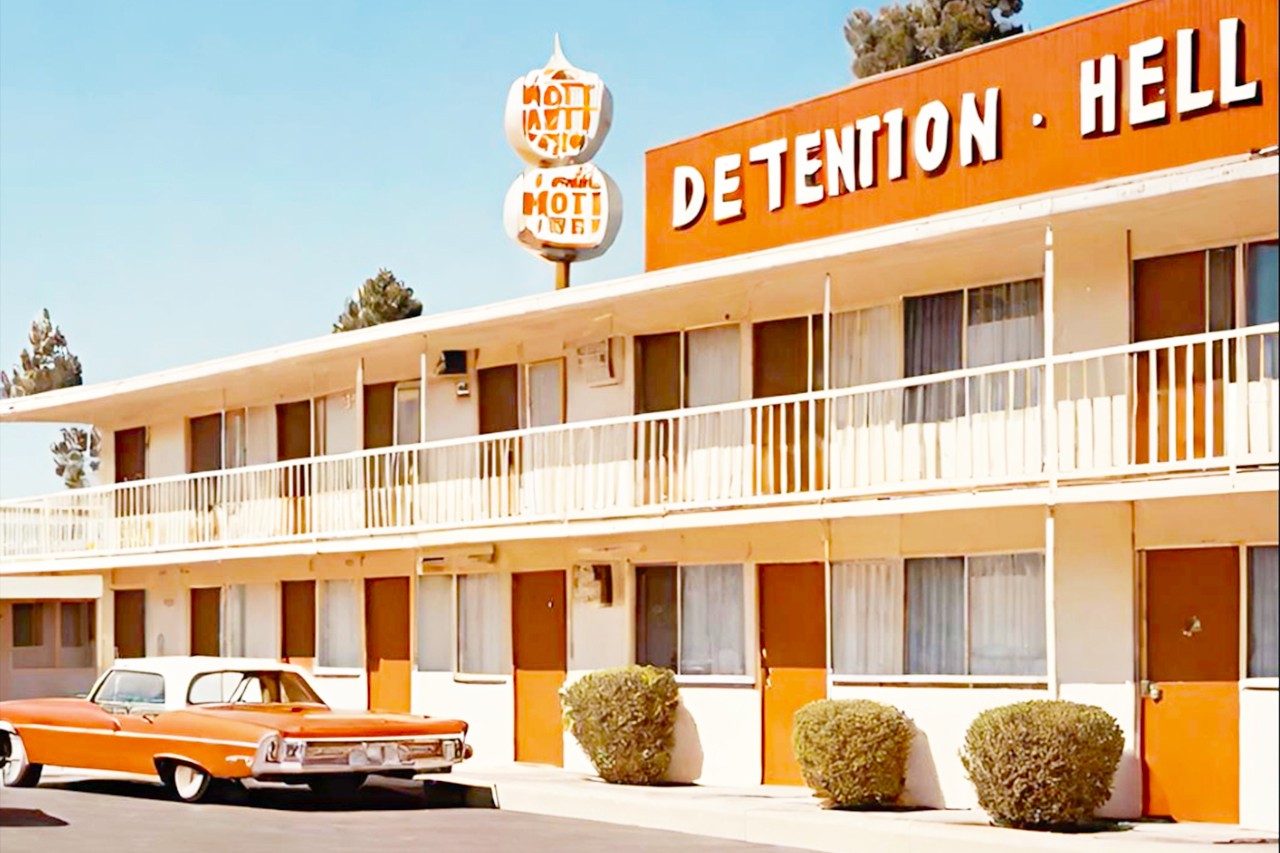
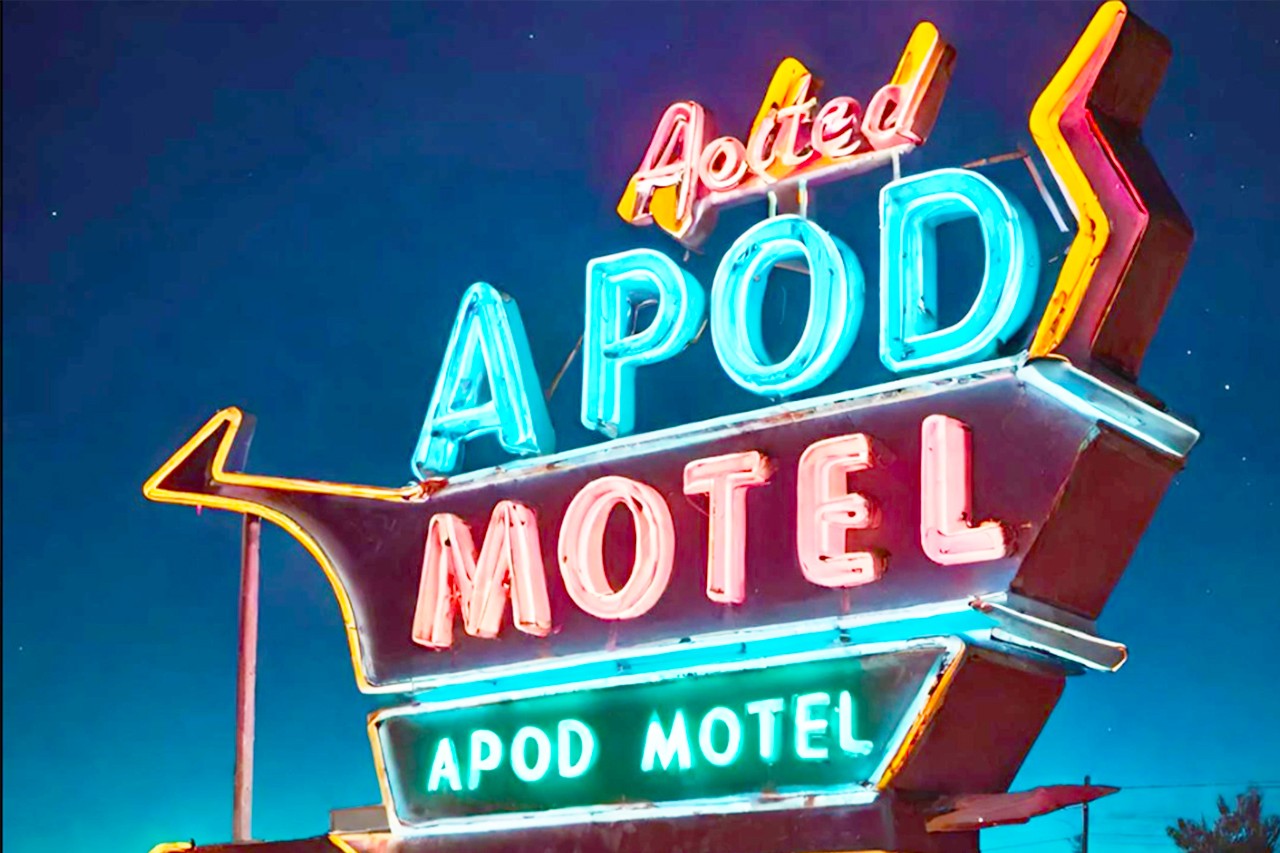
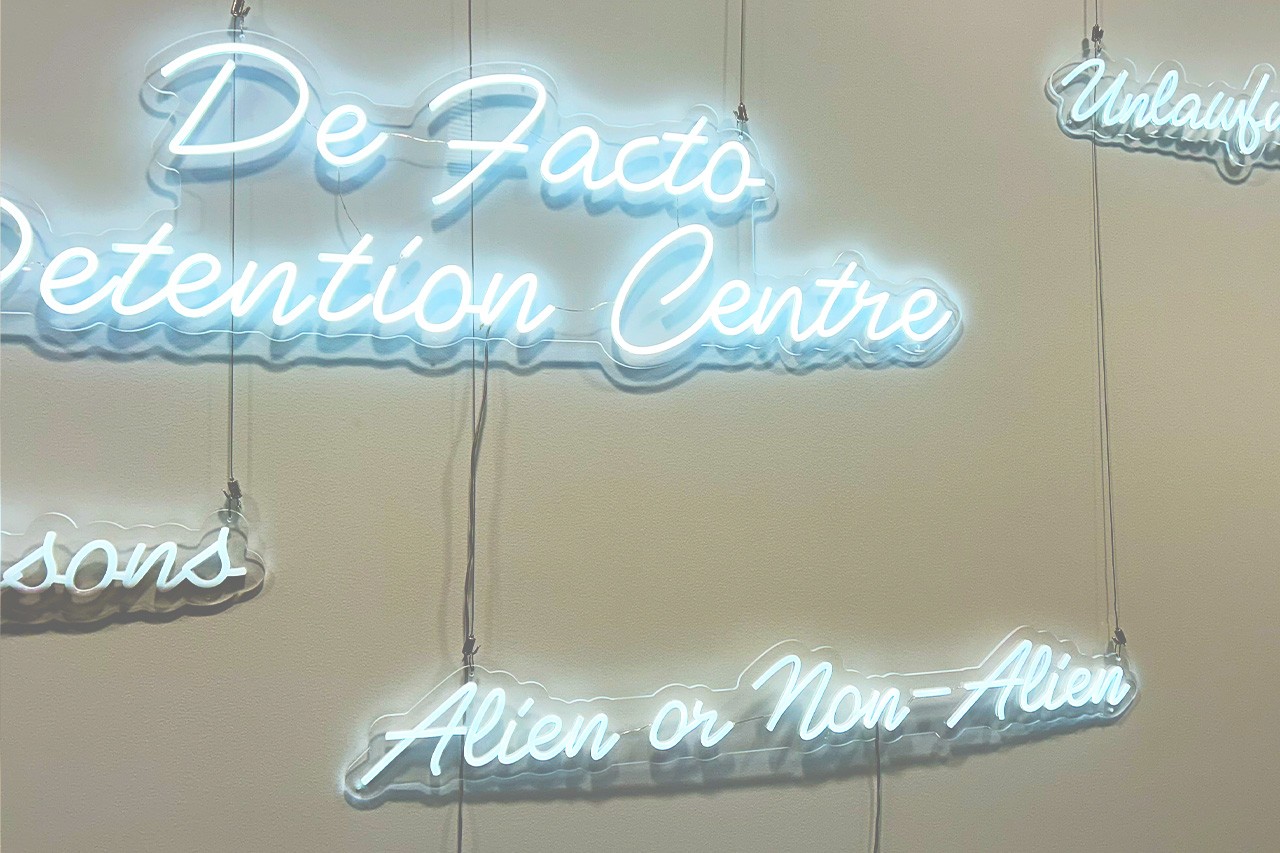
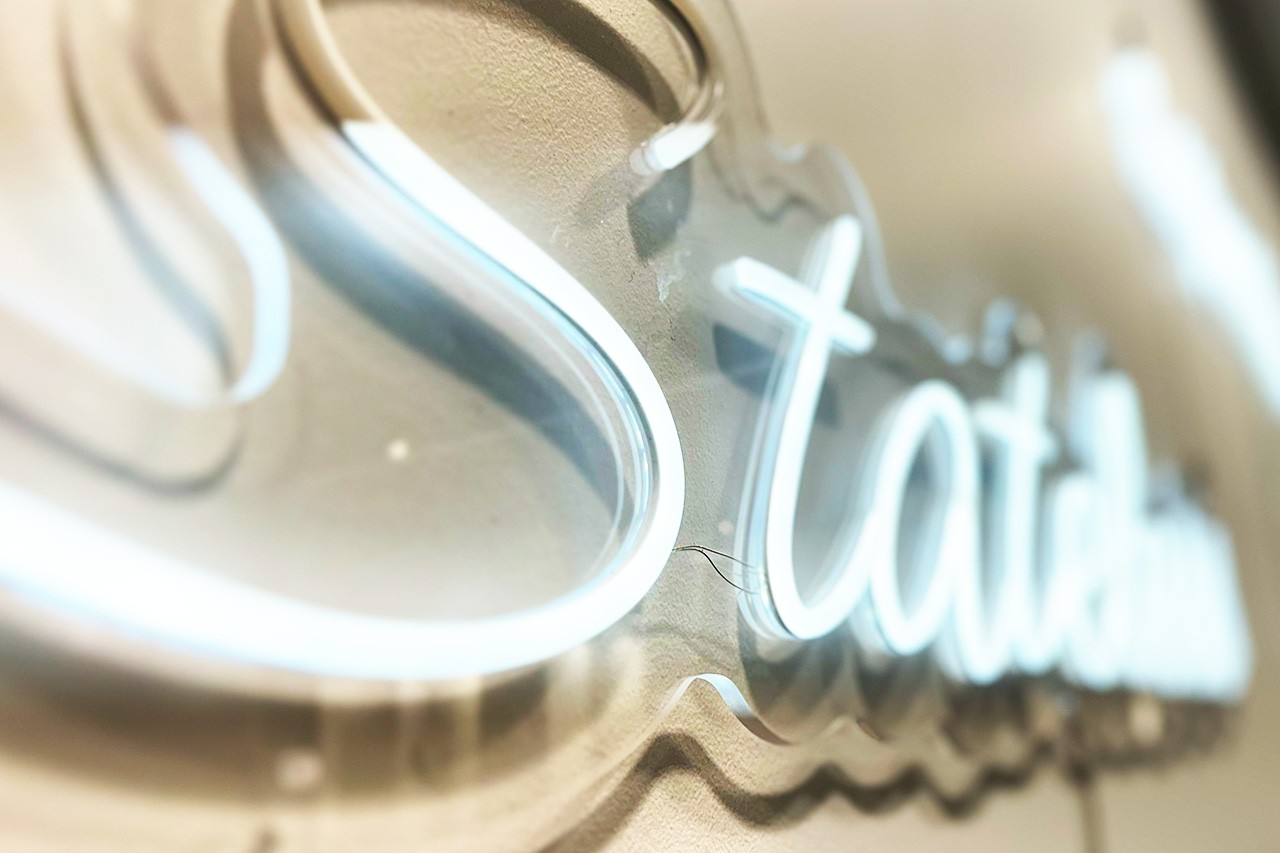
- APOD
- APOD
- APOD
- APOD
- APOD
- APOD
- APOD